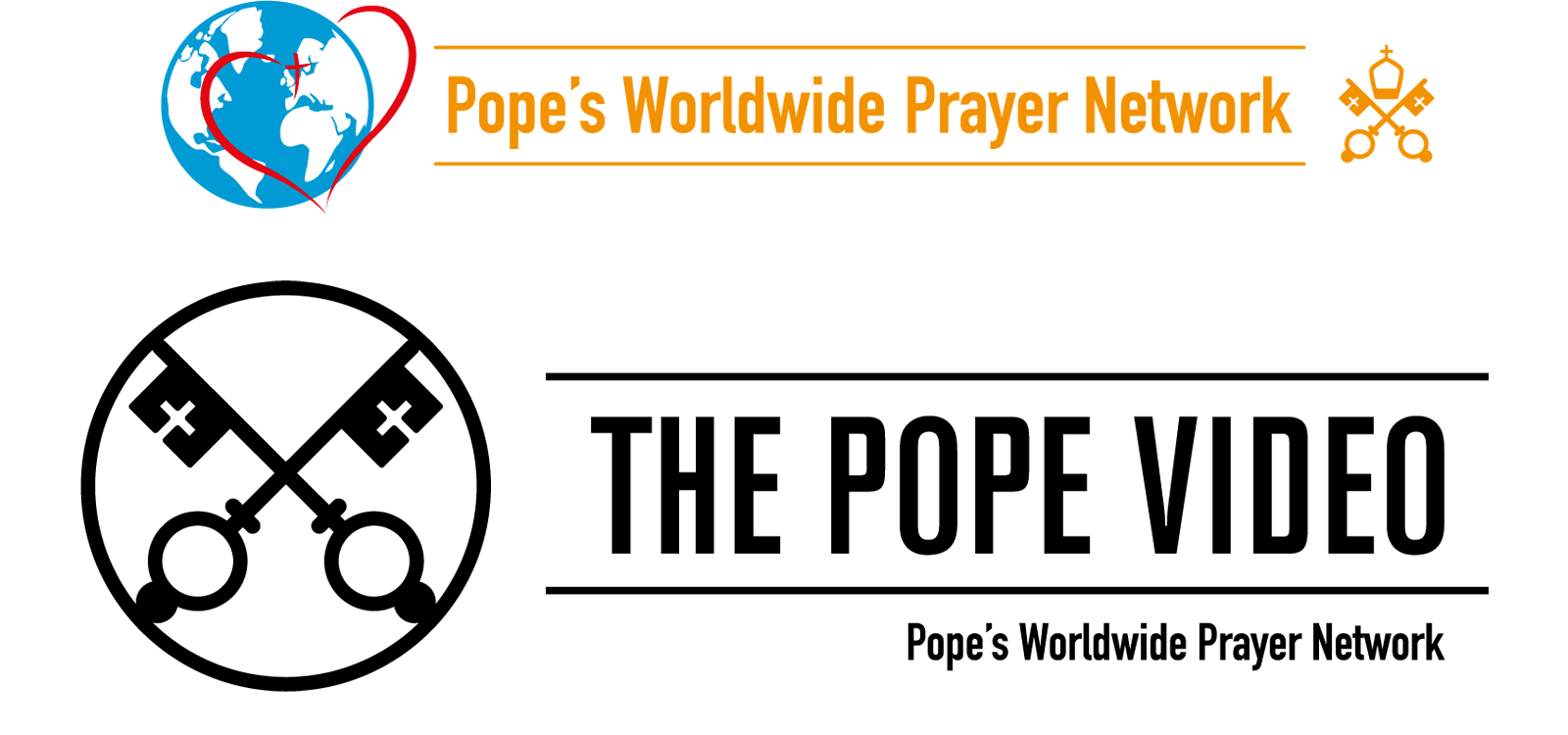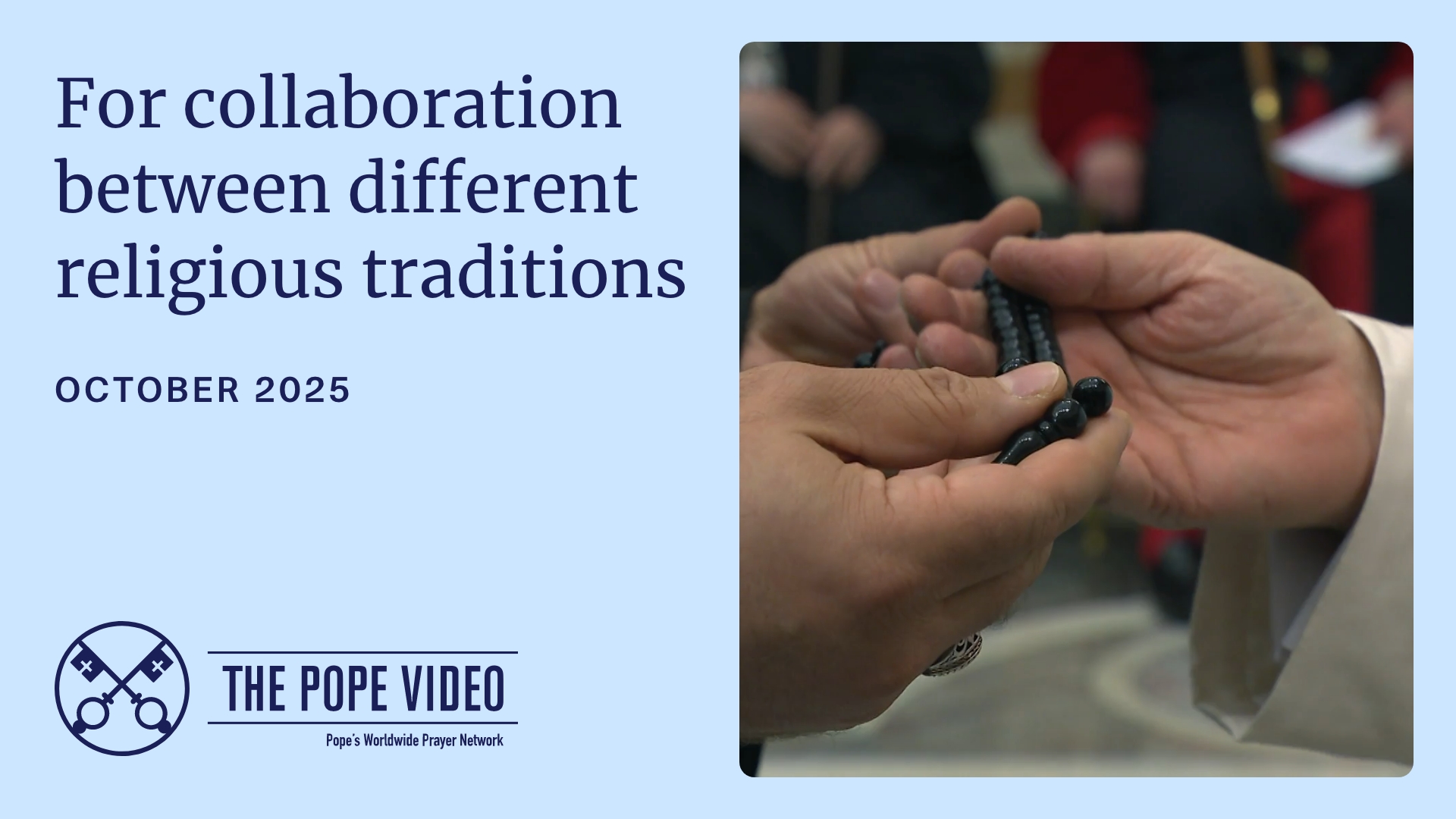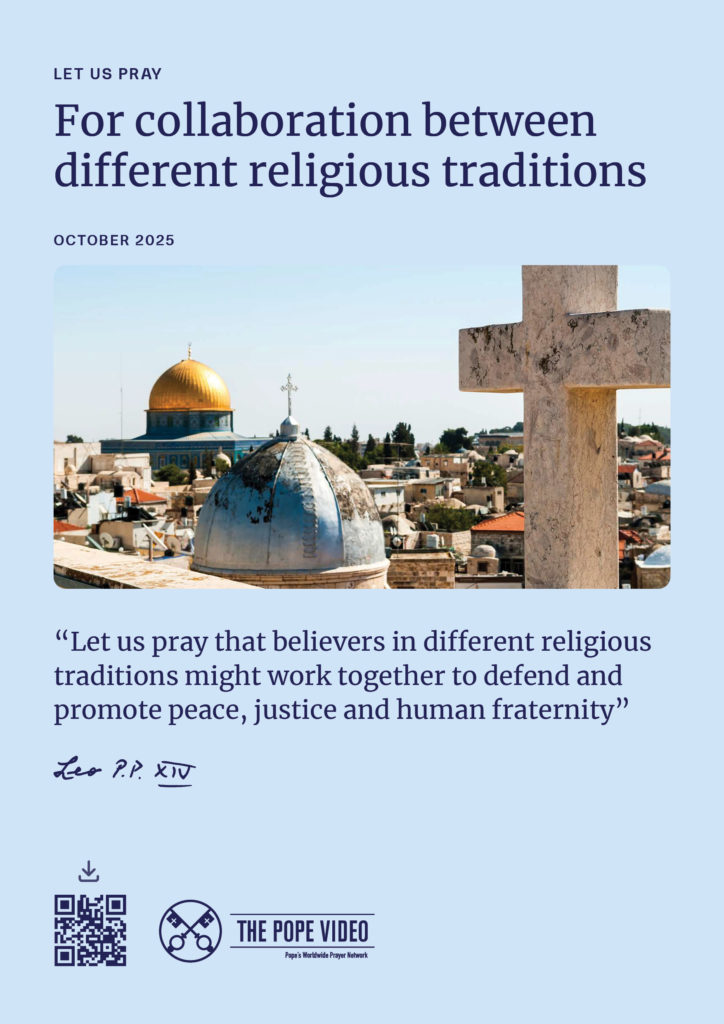Let us pray that believers in different religious traditions might work together to defend and promote peace, justice and human fraternity.
October 2025 – Pope Leo XIV
Lord Jesus,
You, who in diversity are one
and look lovingly at every person,
help us to recognize ourselves as brothers and sisters,
called to live, pray, work, and dream together.
We live in a world full of beauty,
but also wounded by deep divisions.
Sometimes, religions, instead of uniting us,
become a cause of confrontation.
Give us your Spirit to purify our hearts,
so that we may recognize what unites us
and, from there, learn again how to listen
and collaborate without destroying.
May the concrete examples of peace,
justice and fraternity in religions
inspire us to believe that it is possible to live
and work together, beyond our differences.
May religions not be used as weapons or walls,
but rather lived as bridges and prophecy:
making the dream of the common good credible,
accompanying life, sustaining hope
and being the yeast of unity in a fragmented world.
Amen.
Credits
Campaign title:
The Pope Video – OCTOBER | For collaboration between different religious traditions
A project by Pope’s Worldwide Prayer Network
In collaboration with Vatican Media
Creativity and co-production by:
La Machi
Benefactors
—
PRESS RELEASE
Pope Leo XIV: “That religions might be the yeast of unity in a fragmented world”
- As the 60th anniversary of the conciliar document Nostra Aetate occurs during the month of October, the Pope dedicates his prayer intention to collaboration between different religious traditions.
- “May religions,” Pope Leo XIV says, “not be used as weapons or walls, but rather lived as bridges and prophecy.”
- At a time marked by conflicts, the Pope invites all believers to seek what unites, “to defend and promote peace, justice and human fraternity.”
(Vatican City, 30 September 2025). – Today, the new edition of The Pope Video for the month of October is released, containing Pope Leo XIV’s prayer intention: “Let us pray that believers in different religious traditions might work together to defend and promote peace, justice and human fraternity.” His intention, which the Pope entrusts once again this month to the Pope’s Worldwide Prayer Network is proposed at a time marked by conflicts and polarization in which religions sometimes bow to the logic of opposition. The Pope invites us instead to rediscover in religion a bridge of fraternity and a reconciling force.
Not weapons or walls, but bridges and prophecy
The profound meaning of the prayer read by Pope Leo XIV is that collaboration among believers not be relegated to theologians and experts, but nourished by concrete and daily commitment involving every one of us. In fact, the Pope prays that we might learn “to recognize ourselves as brothers and sisters, called to live, pray, work, and dream together.” He also invokes the Spirit that “we might recognize what unites us” and “collaborate without destroying.” The different religious traditions are called to be “the yeast of unity in a fragmented world.” He continues, recalling that the contrary is often the case: “instead of uniting us, is become a cause of confrontation.” Hence, his invitation is extended to all believers, Christians and non-Christians. He exhorts, “May religions not be used as weapons or walls, but rather lived as bridges and prophecy,” and then continues, citing “concrete examples of peace, justice and fraternity” already present.
From above and below
The Video recounts various concrete examples that intertwine with moments “from above” and initiatives “from below.” On the one hand, historical milestones on the interreligious journey: the historic meeting organized by Pope John Paul II in Assisi in 1986; Pope Benedict XVI’s visit to the Synagogue in Rome in 2010; the signing of the Document on Human Fraternity in Abu Dhabi in 2019 under Pope Francis’ pontificate; up to the most recent ecumenical meetings of Pope Leo XIV in the Vatican. On the other hand, however, this month’s prayer intention recalls that interreligious dialogue cannot be limited to meetings with leaders. This is why the images in the video highlight experiences organized on the local level or by ecclesial organizations: the interreligious meeting organized in Singapore in April 2025 by Caritas and the Archdiocese to commemorate Earth Day; or the “One Human Family” event organized by the Focolari Movement between May and June 2024. These are two recent and concrete signs of dialogue that create proximity, trust, and daily cooperation
Nostra Aetate, 60 fruitful years
This prayer intention falls during the 60th anniversary of Nostra Aetate, the Vatican Council II Declaration that transformed the Catholic Church’s relationship with other religions, opening the way to dialogue, respect, and collaboration. The production of the Pope Video marks the beginning of a month in which various initiatives are scheduled to reflect on the conciliar document’s legacy in contemporary society.
Ten years ago, on the 50th anniversary of Nostra Aetate, Pope Francis highlighted its timeliness, recalling that the path of dialogue requires knowledge, respect, and esteem for one another, and that the world is asking believers for effective responses regarding peace, hunger, poverty, the environmental crisis, and violence, especially the violence committed in the name of religion. In that context, the Pope also underlined that believers do not have the “recipe” for every problem, but possess a huge resource: prayer, our treasure from which we draw according to our respective traditions.
An ongoing commitment
“The theme of interreligious dialogue is meaningful, often present in papal intentions,” explains Father Cristóbal Fones, S.J., the International Director of the Pope’s Worldwide Prayer Network. He recalls that “this has happened several times over the years during the month of January, coinciding with the World Day for Peace. In 2016, for example, he prayed that ‘sincere dialogue among men and women of different faiths may produce the fruits of peace and justice’; in 2020, ‘that Christians, followers of other religions, and all people of goodwill may promote peace and justice in the world’; in 2021, ‘that the Lord give us the grace to live in full fellowship with our brothers and sisters of other religions, praying for one another, open to all.’ The intention for October 2025 is included, therefore, within this process, testifying to a journey – that of dialogue – that the Popes have very much at heart.”
“Meetings between the leaders of various religions,” Father Fones continues, “always make news, as they should, for they give hope at a time in which the temptation toward conflict risks compromising the need to come together. But the prayer Pope Leo XIV reads this month tells us that collaboration builds up even when it does not make the news, that is, in everyday life – getting to know and respect each other, learning from each other, praying together for humanity, defending and promoting peace in the places where we live. These are styles of daily life that we can all choose – seeking what unites and working toward the common good alongside our brothers and sisters of different faiths. Thus, believers become craftsmen of peace and fraternity. The Pope Video for October indicates a way: recognizing the dignity of each person, defending justice, sowing peace.”
Finally, within the context of the Holy Year 2025, The Pope Video acquires special relevance since, through it, we know the prayer intentions the Pope holds in his heart. To properly receive the graces of the Jubilee indulgence, it is necessary to pray for the Pope’s intentions.
The Pope Video is possible thanks to the generous contributions made through this website.
Where can the video be seen?
- Official website of The Pope Video
- YouTube channel of The Pope Video
- Facebook CTP page of The Pope Video
- The Pope Video on Twitter/X
- The Pope Video on Instagram
- The Pope on Twitter/X Verified @Pontifex
- The Pope on Instagram Verified @Pontifex
- Official Prayer Platform ClickToPray
- Read the Vatican News’ article
About The Pope Video
The Pope Video is an official global initiative with the purpose of disseminating the Holy Father’s monthly prayer intentions. It is carried out by the Pope’s Worldwide Prayer Network (Apostleship of Prayer). Since 2016, The Pope Video has had more than 253 million views across all the Vatican’s social networks, and is translated into more than 23 languages, receiving press coverage in 114 countries. The videos are produced and created by The Pope Video Prayer Network team, coordinated by Andrea Sarubbi, with the collaboration of La Machi. The project counts on the collaboration of Vatican Media.
About the Pope’s Worldwide Prayer Network
The Pope’s Worldwide Prayer Network is a Pontifical Society, with the mission of mobilizing Catholics through prayer and action in response to the challenges facing humanity and the mission of the Church. These challenges are presented in the form of prayer intentions entrusted by the Pope to the entire Church. The foundation’s mission is inscribed in the dynamic of the Heart of Jesus, a mission of compassion for the world. It was founded in 1844 as the Apostleship of Prayer. It is present in 92 countries, and is made up of more than 22 million Catholics. It includes a youth branch, the Eucharistic Youth Movement (EYM). In July 2024, the Pope approved the definitive Statutes of this Pontifical Work (canonical and Vatican legal entity). Its interim international director is Father Cristóbal Fones, SJ. For more information, visit: www.popesprayer.va.
PRESS CONTACT
POPE’S WORLDWIDE PRAYER NETWORK – VATICAN CITY [email protected]




